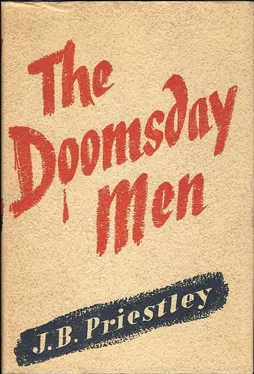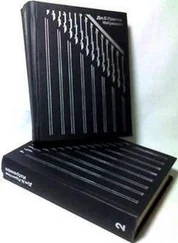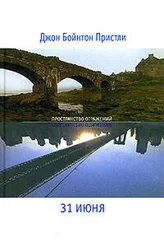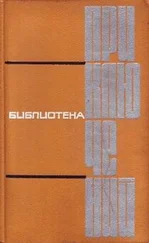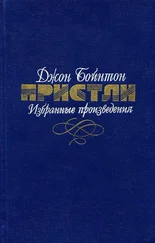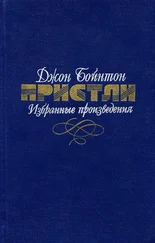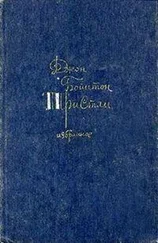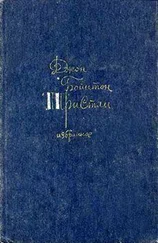“All right, please yourself about that, Rushy, but I must have that notebook as soon as possible. Where is it?”
“Up at my place-one room above a mad Mexican widow just out of South Olive-I just sleep there, that’s all, and don’t always manage that. But you don’t want that notebook now, this minute, surely to God, Jimmy?”
But Jimmy did, and after some further persuasion, and two more quick drinks, he almost dragged the unwilling Rushy out of his haunt, which was more his home than the one room above the mad Mexican widow, and moved him firmly towards South Olive Street.
“Come to think of it,” muttered Rushy, as they went, “it isn’t a room. It’s just a damned upstairs piggery. Ten to one you won’t even be able to sit down.”
“I don’t want to sit down,” said Jimmy, humorous but firm. “I’ve been sitting down too long, and I’m getting too wide behind. But I want that notebook.”
“Christmas bells!” Rushy shouted, as he let them in, “but it can’t be as bad as this. Either I’ve never had a good look at it for months or there’s been a convention in here.”
Jimmy had seen many untidy rooms in his time, had lived in them himself without much protest, but this room of Rushy’s beat everything. There was a bed and a chest of drawers; so much could be clearly seen; but the rest of the place was a crazy litter of shabby books, empty cigar boxes, bulging or overflowing old files, piles of newspapers, odd shoes, fishing tackle, and miscellaneous rubbish and muck.
“I know I haven’t had as many as usual,” the owner muttered, looking bewildered, “but I’ll swear it wasn’t as bad as this last time I noticed it. Sit down on the bed, Jimmy. I know where I put that notebook, though you mightn’t think so.”
He went to the chest of drawers, looked at the first small drawer, exclaimed in surprise, tried the next, gave another exclamation, and then, cursing himself, went rapidly through all the drawers. Blasting his eyesight, he then tried again, going through them all more carefully this time. Not finding what he wanted, he looked slowly about the room. Jimmy waited, smoking his pipe and saying nothing.
At last, Rushy turned, and Jimmy saw that he was wearing a queer look, half-bewildered, half-frightened, and was suddenly cold sober. “Jimmy Edlin,” he began, in an odd quiet voice, “you’ve got to believe me. Yesterday, I know , that notebook of Phil’s was in that top drawer. I thought I might have shifted it somewhere else last night, so I’ve looked through all the drawers. It’s gone, Jimmy. Somebody’s taken it.”
“Here, wait a minute. Let’s have a proper look.”
“I tell you, somebody’s been here and taken it. I knew somebody had been in here the minute I came in. God knows it’s always a mess, but not just this kind of a mess. I tell you, Jimmy,” he asserted passionately now, “somebody’s been all through this room, looking for something. And the notebook’s gone.”
There was panic in his voice. He looked at Jimmy hopelessly. And in the silence that followed, Jimmy heard the screeching of motor-car brakes outside, and an odd sinister sound it seemed at that moment.
“Now wait, before we start getting all excited,” said Jimmy, with deliberate calm. “Are you going to tell me that a bunch of religious loonies sent somebody here to go through your room and take that notebook? It isn’t sense, Rushy.”
“No? And it wasn’t sense that your brother Phil-”
“That’s different.”
“Well-is it? And if you can blow a hole in a feller, I suppose you can go through another feller’s room, can’t you? I tell you, Jimmy, they’ve been here-and it’s gone-and I don’t like the look of things at all.”
“You’re getting the jitters, Rushy. Now why-”
“Listen!” And Rushy held up his hand. Up the uncarpeted stairs, heavy footfalls were approaching. Even Jimmy did not feel quite calm, and Rushy was obviously perturbed. “Coming here,” he whispered, and held himself rigid. There was a sharp knock.
They looked at one another, and Rushy shook his head. There was a second and a louder knock.
“Go on,” said Jimmy. “Hell-there are two of us.” But Rushy did not move, so Jimmy went himself and threw the door open wide.
A tall young man in a bright brown suit entered. “Good evening,” he began, in a smooth plausible tone. “Now I’d like to interest you gentlemen in our new day-by-day clothes pressing service, collecting coats, pants, tuxedos, or what-have-you, every morning, and returning everything the same afternoon. We guarantee good service-” But anything else he said was drowned by Jimmy’s sudden shout of laughter.
“Well, that’s how it is, Rushy,” Jimmy roared, after they had got rid of the young man. “The big menace turns into a pants-pressing service. And now let’s find that notebook. It must be somewhere in this museum of yours.”
But it wasn’t, and Rushy, who proved that he knew his way among this litter, was able at last to convince Jimmy that the notebook really had been taken, by somebody who had gone through the room very thoroughly.
“But if they did,” said Jimmy, making his final protest, “how did they know it was here?”
“How did they know poor Phil was on to them?”
“Perhaps they didn’t,” Jimmy retorted. “I can think of a dozen more likely ways of being killed, down-town here. Phil goes into that back room because he’s made a date there with some fellow-”
“No doubt about that, except I’ll bet the feller had suggested that place. It wouldn’t be a woman, because that wasn’t Phil’s line. Something to do with a story, you bet your life!”
“Right! But while he’s waiting there-and it’s late and a tough neighbourhood-anything might have happened. A couple of Mexican stick-up men might have charged in-”
“And not gone through his pockets? Guess again, Jimmy. That wasn’t any stick-up job. I knew that from the first, just as I knew it wasn’t any of these Brooklyn gorillas they talked so much about. No, sir.” He turned and looked about him, muttering, “Got a bottle of Seagram’s somewhere, and ought to be able to raise another glass besides that one with the tooth-brush in. Here we are. Help yourself, Jimmy, and hurry up, for God’s sake. I’ve got a mouth like Death Valley.” But that made him think of something else.
“What’s got you?” asked Jimmy.
“Death Valley reminded me. Jimmy, I think I can remember nearly everything he had in that notebook-I mean, about this Brotherhood of the Judgment-you remember, those were the birds he mentioned to me. There wasn’t much, all told. Now wait.” And he stood there, still holding the bottle of rye and a glass, with his eyes tightly shut, while Jimmy sat on the edge of the bed, staring at the astonishing muddle of the room, and hearing, from somewhere outside, a dance band lolloping away on the radio. “I’ll have to think this over when I’m alone,” Jimmy was telling himself. “Nothing makes any sense while this wet old file of headlines is around. He’s just as nutty as the people he talks about.”
Then Rushy opened his eyes and grinned faintly. But before he spoke, he took a sharp pull at the rye. “Now then, if there’s anything I can’t remember, it’s something that wouldn’t mean a dam’ thing to you or me or anybody else. He’d written at the top of the page Brotherhood of the Judgment . Then something about there being four temples or arks-”
“Arks!” Jimmy snorted. “And we’re sitting here, at our time of life, worrying about people who want to have arks.”
“Jimmy,” the other warned him solemnly, “the folks who are nutty enough to want to have arks might be dangerously nutty. Anyhow, there was an ark, he thought, in London, one in New York, one in Chicago-and, believe me, that’ll be some ark, that one in Chicago-and one, the chief one, here in L.A.”
Читать дальше
